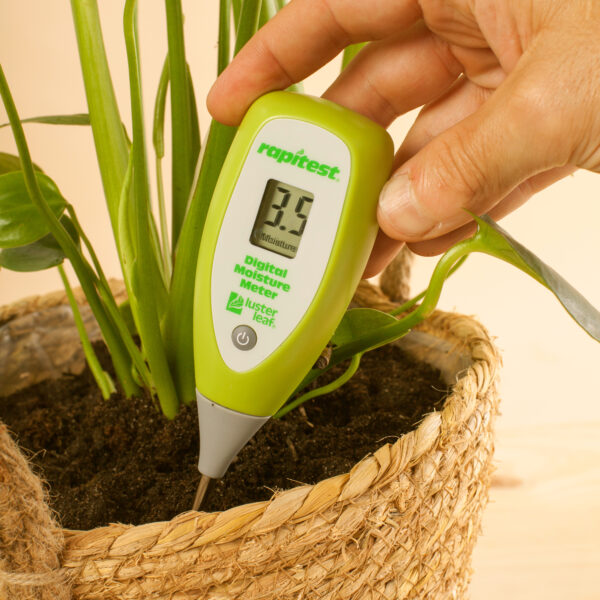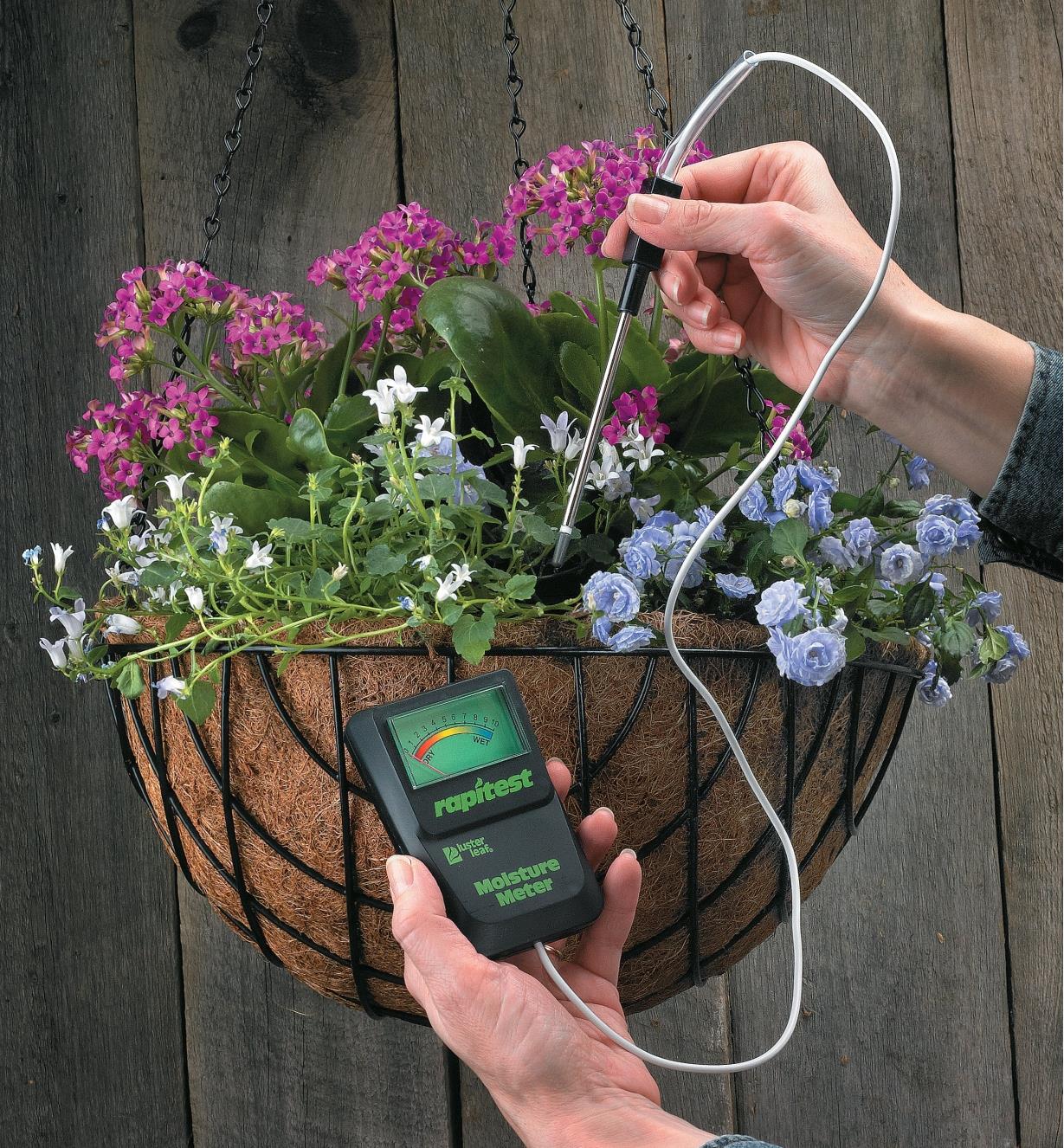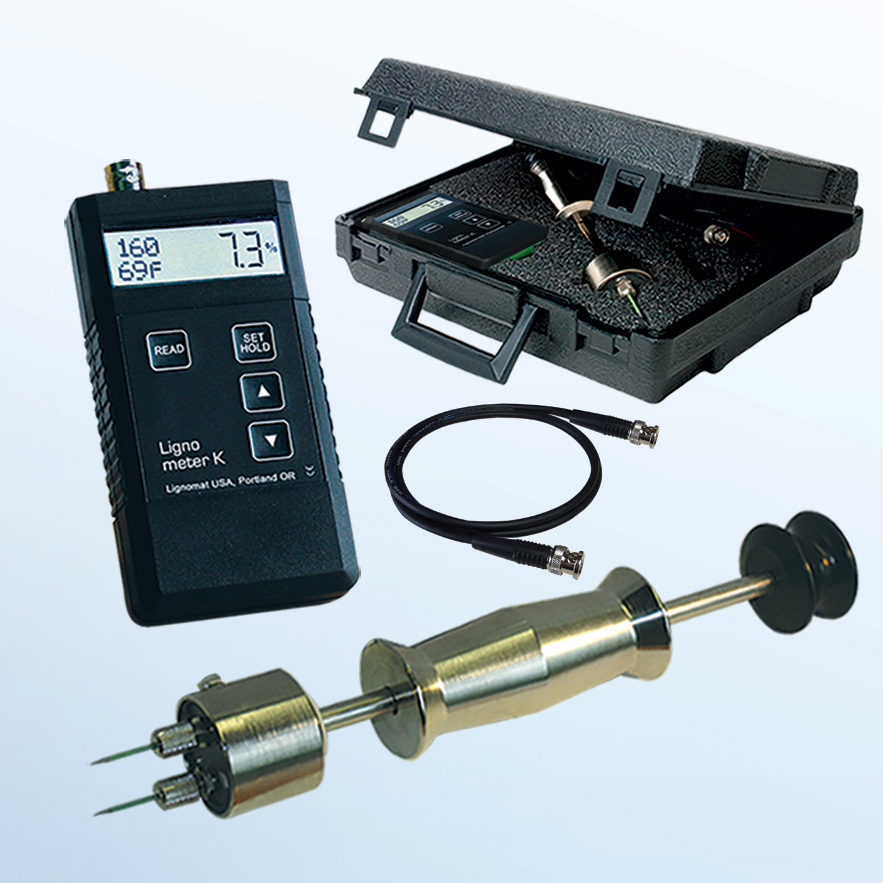Why Every House Owner Demands a Moisture Meter: Secret Benefits and Functions
Why Every House Owner Demands a Moisture Meter: Secret Benefits and Functions
Blog Article
The Ultimate Guide to Moisture Meters: A Comprehensive Summary and Exactly How They Can Save You Cash
In the realm of structure upkeep, construction, and various industries, the importance of accurately determining dampness levels can not be overstated. Wetness meters act as important tools in spotting and keeping an eye on moisture content in materials, helping in protecting against pricey problems and making sure the quality of items. Recognizing the nuances of various sorts of moisture meters, their applications, and the possible cost-saving benefits they supply can be a game-changer for services and specialists alike. Finding exactly how these devices can not just enhance procedures yet also add to financial cost savings is a journey worth getting started on.
Sorts Of Moisture Meters
One usual type is the pin-type moisture meter, which measures the electric resistance in between two pins placed into a product. Pinless moisture meters, on the various other hand, use electromagnetic sensing unit plates to scan a bigger location without triggering damages to the product's surface area.
Moreover, there are additionally specialized moisture meters made for details products like grain, soil, or hay. These meters offer exact wetness analyses customized to the unique buildings of the product being evaluated. Infrared moisture meters determine the thermal properties of a material to determine its wetness content non-invasively, making them valuable for applications where pin or pinless meters may not appropriate. Recognizing the different kinds of dampness meters available can help sectors select one of the most suitable device for their details dampness measurement requirements.

Advantages of Using Moisture Meters

Additionally, using wetness meters can result in raised energy performance. By recognizing areas with high moisture degrees, such as leaks or inadequate insulation, changes can be made to enhance energy conservation and lower energy prices. In farming setups, moisture meters play an essential duty in optimizing plant returns by making it possible for farmers to monitor soil wetness levels and make notified irrigation decisions. Generally, the advantages of utilizing dampness meters span across numerous markets, supplying affordable solutions and advertising far better quality control techniques.
Exactly How to Choose the Right Moisture Meter
Selecting the suitable dampness meter includes considering vital factors such as material compatibility, measurement range, and calibration accuracy. When picking a wetness meter, it's vital to make sure that the meter appropriates for the specific material you will be screening. Various products have varying electrical homes that can influence dampness readings, so picking a meter designed for your material is critical for exact results. In addition, consider the dimension series of the moisture meter. Guarantee that the meter can spot dampness degrees within the variety required for your applications. Calibration accuracy is one more essential variable to remember (Moisture Meter). Select a moisture meter with dependable calibration to make sure consistent and exact readings. Some meters may call for regular calibration adjustments, so recognizing the calibration procedure is essential. By meticulously examining these elements, you can pick a dampness meter that meets your requirements and gives exact wetness measurements for your jobs.
Appropriate Strategies for Moisture Meter Usage
To ensure exact dampness analyses and make the most of the effectiveness of a wetness meter, utilizing proper strategies is vital. When making use of a pin-type moisture meter, put the pins or probes into the material being evaluated until they make complete call. Make sure the pins are perpendicular to the surface area to get the most specific reading. For pinless moisture meters, hold the device flat against the product and relocate gradually to cover the entire area for an average reading. It's important to calibrate the dampness meter according to the material being checked to boost precision. Take several analyses across the surface and average them out for a much more dependable outcome. In addition, make certain that the product being examined is acclimated to the setting to protect against manipulated readings. he has a good point Routine upkeep of the dampness meter, such as cleansing the pins or sensor, is likewise vital to make sure regular and exact readings. By complying with these appropriate methods, customers can rely upon their dampness meter to provide credible dampness degrees, assisting in protecting against costly damage or guaranteeing high quality in different applications.

Expense Financial Savings With Moisture Meter Applications
Exactly how can the critical usage of dampness meters lead to considerable cost financial savings across numerous markets? In the agriculture sector, moisture meters aid in identifying the optimum time for harvesting crops, avoiding excess or over-drying dampness that can impact the final item's quality.

In addition, in the food processing market, moisture meters are crucial for monitoring product high quality and guaranteeing conformity with safety and security laws. By accurately determining moisture content in food, makers can avoid perishing, preserve freshness, and minimize waste, causing significant expense savings. In general, the calculated application of wetness meters is a useful financial investment that can result in considerable expense reductions and boosted performance throughout various sectors.
Conclusion
In final thought, moisture meters are beneficial devices for gauging and finding dampness levels in numerous materials. By making use of the appropriate moisture meter and following correct techniques, individuals can successfully stop pricey problems triggered by excess moisture.
Dampness meters serve as indispensable tools in finding and checking moisture web content in products, assisting in preventing costly damages and ensuring the quality of products. Infrared dampness meters measure the thermal homes of a product to determine its moisture web content non-invasively, making them beneficial for applications where pin or pinless meters may not be ideal.Dampness meters offer important benefits in precisely examining and checking moisture levels in varied materials and environments. In farming setups, dampness meters play a critical function in enhancing plant returns by enabling farmers to keep an eye on soil wetness degrees and make informed watering you can check here decisions.In final thought, wetness meters are important tools for determining and discovering wetness levels in various materials.
Report this page